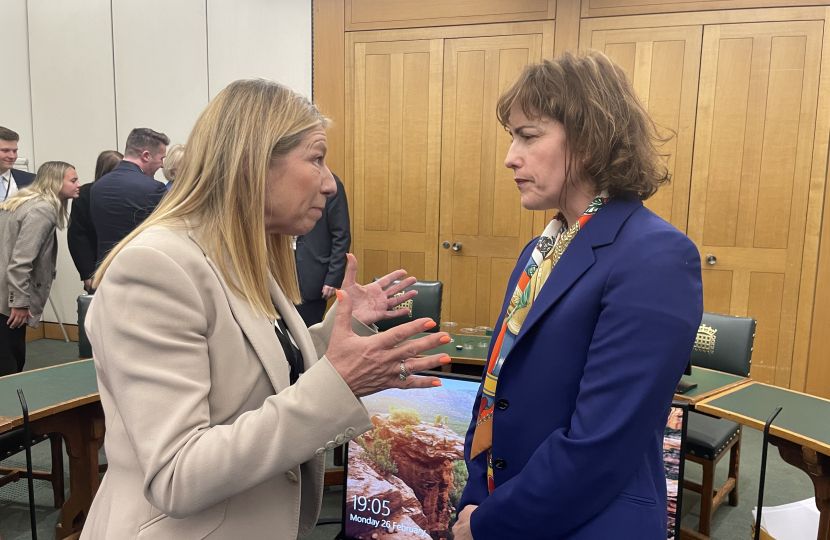
I was delighted to meet the Health Minister Victoria Atkins tonight and tell her that as a volunteer in Kingston Hospital A&E I am very privileged every week to experience first hand the world of health emergency where we all end up one time or another with a loved one with our children, our parents or our husband. (Occasionally ourselves too!)
I told her that we are very excited about the new government funded ICU being built at Kingston Hospital which is going to transform our intensive care. In Jan 2020 I nearly lost a daughter to sepsis following covid (probably covid) and I know first hand how the ICU hours slip by with amazing nurse at your side but sometimes without progress. Daylight and facilities make all the difference and that's what we are building in the new bespoke Kingston ICU. It will be transformative.
When I'm working in A&E, my job (after doing the linen) is to find the patients on their own, maybe anxious, and support them. I'm trying to be the backup to the nurses and doctors who are busy and so in demand.
I told Victoria that three things stood out for me that needed to be addressed :
Number One: The Corridor
Patients arrive in an ambulance or through reception and are professionally and quickly triaged. Once patients arrive in Majors or X Ray or CDU or Resus they are given the dedicated high level patient centred care that we are proud of. But we have a between-heaven-and-earth queuing system in the corridor which causes huge anxiety for patients. Probably the biggest problem for patients is needing to go to the loo. If they are waiting for 3 hours or in some cases all night, on a trolley (bed) they will usually be immobile not able to get up to go the loo... what do they do? Having a catheter fitted in the corridor is less than private. And all night long the back door opening and closing makes it cold and the paramedics arriving coming and going is loud - the chances of rest and sleep in the corridor is - none. Then patients are exhausted and anxious.
When my own dear father was in his last weeks, he was once put in the corridor, he said to me, "I thought I was going to die in the corridor and no one would know".
The corridor is my major worry.
Victoria Atkins told me we have 50,000 more beds. (I said - But not in the corridor)
Number Two: The Fall
Many of our patients in A&E are elderly, some struggle with their weight as well, many live on their own. After a bad fall, they come to us in A&E, with bruises and sometimes confusion. Sometimes they discover complications they didn't know they had. A&E are brilliant at diagnosing and procuring medication to get better .. but a social care safety net might be better at shielding our delicate elderly in a more compassionate way. Our elderly need a specialist reception really that keeps them calm and confident and helps them to regain their balance physically and mentally.
Number Three: Mental Health Emergency
During the pandemic our mental heath emergency cases were routed directly to Mental Health Professionals at specialist facilities. Now our mental health emergency patients come to A&E. If an AMP (a mental health professional) is not available then police and security supervision is provided but some patients can be loud and stressful to other patients. Work is being done to restore an emergency mental health destination. More on that. Plus police do not have the time to spare to 8hrs supervision when they have emergency policing to uphold. See my article on blue light policing.
Plus Strikes
We also had a chance to discuss the junior doctors strikes this week, asking for 35% increase. I explained that with the back up from paramedics and police and the additional resource from senior doctors that A&E was well covered. The impact on cancelled scheduled operations however is key. I will be volunteering again tomorrow and will see.

